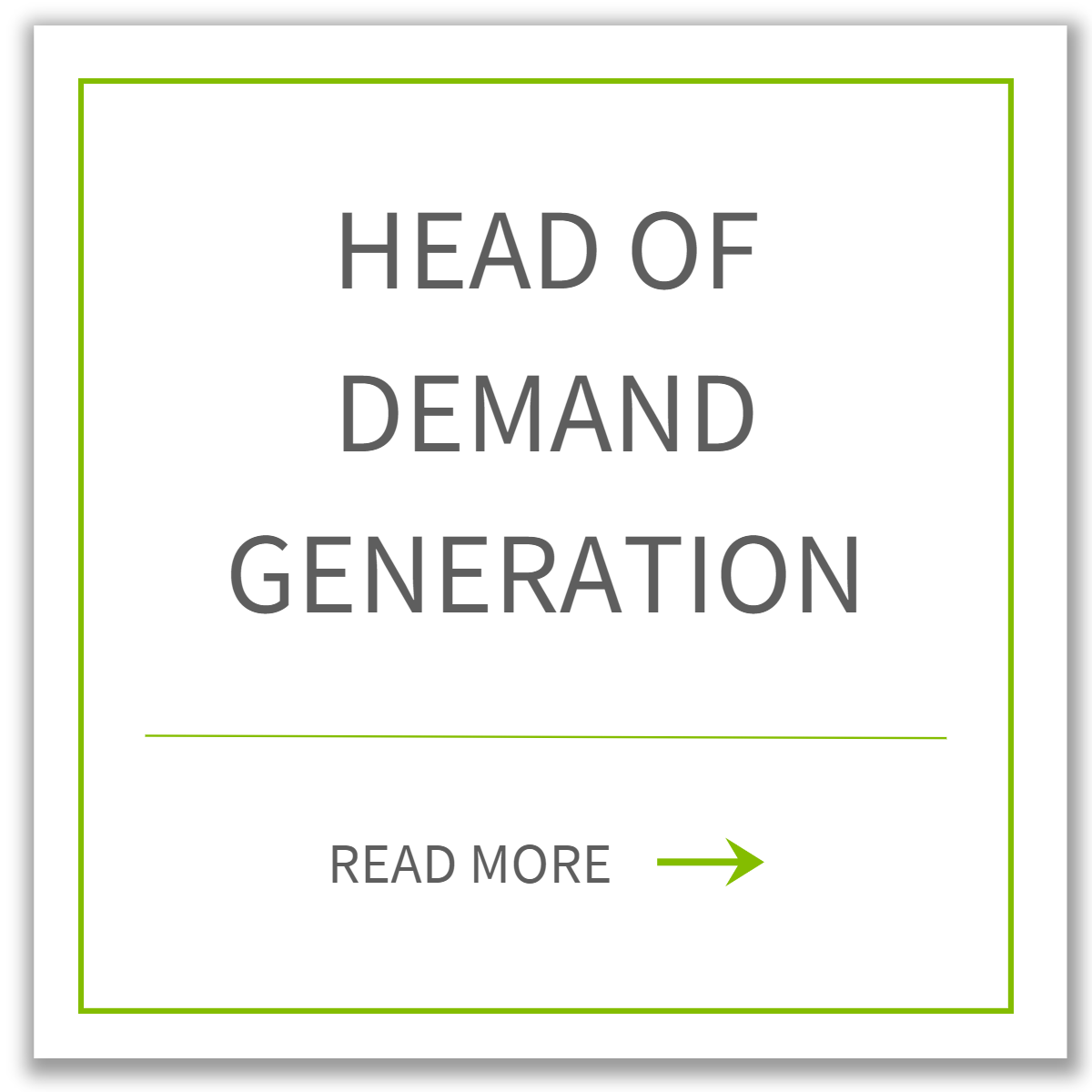B2B Chief Revenue Officer
Job Summary:
The B2B Chief Revenue Officer (CRO) is a senior executive leadership role responsible for unifying and directing the entire revenue ecosystem across sales, marketing, and customer success functions. This strategic position serves as the architect of integrated revenue generation, taking a holistic approach to growth that spans the complete customer lifecycle—from initial awareness through long-term partnership and expansion. The CRO aligns traditionally siloed go-to-market teams, optimizes customer acquisition and retention economics, and establishes the frameworks, metrics, and technologies that drive predictable and sustainable revenue growth across your organization's specific market context.
B2B Chief Revenue Officer Responsibilities:
Integrated Revenue Strategy:
Architect and direct comprehensive revenue strategies that unify sales, marketing, and customer success functions into a cohesive engine.
Translate business objectives into integrated go-to-market approaches spanning prospecting, conversion, onboarding, expansion, and retention.
Align marketing messaging, sales methodologies, and customer success initiatives to create consistent experiences across the customer journey.
Optimize customer acquisition costs while maximizing customer lifetime value through strategic resource allocation.
Navigate sophisticated buying committees, extended decision cycles, and evolving digital engagement models in B2B environments.
Capture market share through coordinated revenue motions tailored to your competitive landscape.
Cross-Functional Leadership and Alignment:
Build and nurture collaborative cultures across sales, marketing, and customer success organizations.
Manage natural tensions between revenue functions while maintaining organizational alignment toward shared objectives.
Break down traditional silos to ensure seamless customer experiences from awareness through partnership.
Lead executive teams across multiple revenue disciplines, fostering cooperation and mutual accountability.
Establish shared goals and interdependencies that drive coordinated execution across all revenue teams.
Create communication frameworks that keep revenue functions synchronized on priorities and performance.
Revenue Operations and Analytics:
Establish meaningful metrics that provide visibility across the entire revenue organization and customer lifecycle.
Implement revenue operations capabilities that drive accountability, process improvement, and scalability.
Deploy technologies that illuminate the full customer journey and enable data-driven optimization.
Leverage analytics to continuously improve performance across demand generation, pipeline development, conversion, and expansion.
Build forecasting methodologies that create predictability across all revenue streams.
Develop dashboards and reporting frameworks that inform strategic decisions and tactical adjustments.
Ensure CRM and marketing automation platforms integrate effectively to support unified revenue visibility.
Strategic Planning and Market Positioning:
Develop and communicate revenue roadmaps that align with overall business growth objectives.
Conduct market analysis to identify opportunities for revenue expansion and competitive advantage.
Position offerings strategically based on deep understanding of market landscape, buying patterns, and customer challenges.
Collaborate with executive leadership to ensure revenue strategies support broader organizational direction.
Continuously evaluate competitive dynamics and market trends to refine go-to-market approaches.
Balance new customer acquisition with existing account expansion based on economic analysis and strategic priorities.
Demand Generation and Pipeline Development:
Oversee integrated demand generation strategies that feed predictable pipeline across target segments.
Align marketing investments with revenue objectives, ensuring efficient lead generation and qualification.
Optimize conversion rates across all stages of the buyer's journey through coordinated marketing and sales activities.
Implement account-based marketing and sales strategies for strategic customer targets.
Ensure marketing and sales collaboration on messaging, content, and engagement strategies.
Monitor pipeline health, velocity, and conversion metrics to identify optimization opportunities.
Customer Success and Revenue Retention:
Integrate customer success strategies with overall revenue objectives, ensuring retention and expansion focus.
Establish frameworks for customer onboarding, adoption, and value realization that drive renewal rates.
Develop expansion playbooks that systematically grow revenue within existing customer base.
Monitor customer health metrics and implement early warning systems to protect revenue at risk.
Align customer success investments with lifetime value economics and expansion potential.
Create feedback loops that inform product development and go-to-market refinements based on customer insights.
Financial Management and Resource Allocation:
Manage significant investments across marketing, sales, and customer success functions with fiscal discipline.
Demonstrate sophisticated understanding of unit economics, return on investment, and resource optimization.
Partner with finance organization on budgeting, forecasting, and investment prioritization across revenue initiatives.
Analyze financial performance across all revenue streams and make data-informed allocation decisions.
Balance short-term revenue demands with long-term growth investments strategically.
Track and optimize customer acquisition costs, sales efficiency ratios, and lifetime value metrics.
Change Management and Organizational Development:
Navigate complex change initiatives required to transform established revenue practices.
Build stakeholder buy-in across the organization for new revenue methodologies and structural changes.
Overcome organizational resistance through clear communication, inclusive planning, and demonstrated results.
Develop talent across revenue functions through strategic hiring, coaching, and professional development.
Foster cultures of continuous improvement, innovation, and customer-centricity across all revenue teams.
Implement new technologies and processes with change management disciplines that ensure adoption.
Market and Industry Expertise:
Maintain deep knowledge of your specific market context—whether enterprise technology, professional services, manufacturing, or distribution.
Understand competitive dynamics, industry trends, and regulatory considerations affecting revenue generation.
Develop insights into evolving buyer behaviors, procurement processes, and decision-making frameworks.
Represent thought leadership on revenue strategy and integrated go-to-market approaches.
Network strategically within industry communities to identify emerging opportunities and best practices.
Requirements for a B2B Chief Revenue Officer:
Bachelor's degree in business, marketing, or related field. MBA or advanced degree strongly preferred.
Minimum 12-15 years of progressive leadership experience spanning multiple revenue functions (sales, marketing, customer success).
Proven track record unifying revenue organizations and delivering predictable growth in B2B environments.
Demonstrated success building collaborative cultures across traditionally siloed revenue teams.
Strong strategic thinking with ability to articulate sophisticated market approaches and integrated revenue methodologies.
Exceptional cross-functional leadership skills with evidence of managing tension between revenue disciplines.
Data-driven decision-making capabilities with proficiency in revenue analytics and operations.
Deep financial acumen including unit economics, resource allocation, and ROI analysis across revenue initiatives.
Experience implementing revenue technologies, CRM platforms, marketing automation, and analytics tools.
Industry expertise specific to your market with understanding of competitive landscape and buying patterns.
Change management abilities with track record of successful organizational transformation.
Outstanding communication skills effective with executive leadership, board members, and revenue teams.
Customer-centric mindset with commitment to ethical practices and long-term relationship building.
Proven ability to balance revenue ambition with sustainable growth practices.
Experience optimizing the full customer lifecycle from acquisition through expansion and retention.
Note:
This job description is intended to convey essential job functions and responsibilities. It is not intended to be an exhaustive list of the position's qualifications, skills, efforts, duties, or responsibilities.





